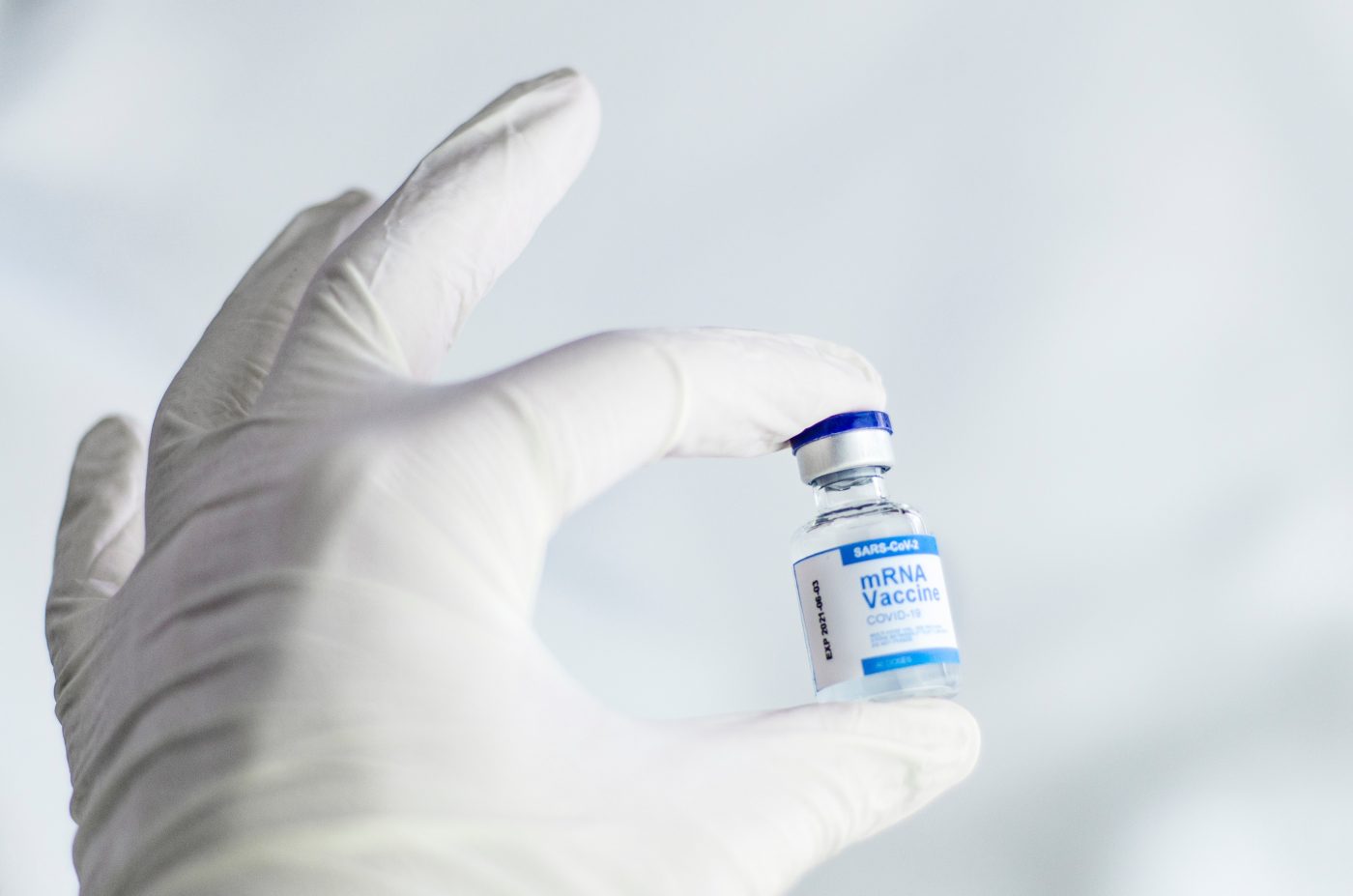Despite COVID Vaccinations, Caution Still Crucial for Transplant Recipients
Written by |

(Photo by Spencer Davis on Unsplash)
Note: This article was updated to include information from a Hopkins study published on May 5, 2021, of responses after a second vaccine dose was given to transplant patients.
Long before COVID-19 changed the world, organ transplant recipients were wearing masks to shield themselves from airborne threats.
Immunosuppressive medicines, which often are a lifelong regimen after a transplant, require these people to add an extra layer of protection against viruses as common as a cold or as dangerous as COVID. They are told to use masks for any group gatherings or airplane flights, and hand sanitizing is a must.
While COVID has brought a heightened awareness of these patients’ health risks and fragility, a recent study by Johns Hopkins University researchers in Baltimore, Maryland, and a report from the Mayo Clinic in Jacksonville, Florida, may raise their sense of unease even further.
The Hopkins study, published as a research letter to the journal JAMA, revealed that a large group of solid organ transplant recipients given a first dose of either the Pfizer-BioNTech or the Moderna vaccine failed to “mount appreciable antispike antibody responses” needed to protect them against the SARS-CoV-2 virus that causes COVID-19.
Of the 436 transplant patients (median age of 55.9, median time since transplant 6.2 years) in this study, all without COVID infection, only 76 people (17%) developed “detectable” antibodies over a median of 20 days after the first injection. Those most likely to have some response were younger than 60, did not use anti-metabolites [like hydroxyurea or cladribine] for immunosuppression, and received the Moderna vaccine.
“These results contrast with the robust early immunogenicity observed in mRNA [messenger RNA] vaccine trials, including 100% antispike seroconversion by day 15 following vaccination with mRNA-1273 [Moderna] and by day 21 following vaccination with BNT162b2 [Pfizer-BioNTech],” the researchers wrote.
More promising news came when Hopkins scientists looked at antibody responses after a second COVID vaccination, reported in a separate research letter published in JAMA on May 5. This study in 658 solid organ transplant patients found 259 (39%) showing a measurable response after that second vaccine, despite no such response after a first, and 98 others (15%) with a first-dose response maintaining measurable antibodies after a second dose.
But “antibody levels were well below that which has been observed in immunocompetent vaccinees,” its researchers wrote, concluding “these data suggest that a substantial proportion of transplant recipients likely remain at risk for COVID-19 after 2 doses of mRNA vaccine.”
Likewise, scientists at the Mayo Clinic in Florida, reported treating seven organ transplant patients for COVID-19 infection after being vaccinated, including five who had both doses of Pfizer or Moderna a median of 28 days earlier. Of the six tested for antispike antibodies, low levels were found in one patient.
“I got to be scared of the smallest baby to the oldest grandma in her wheelchair,” David Ota, a pulmonary fibrosis patient who had a lung transplant in May 2016, and received both doses of the Pfzier-BioNTech vaccine, told Pulmonary Fibrosis News Today. “Every one of those people can kill me.”
‘100% recommend’ vaccination
Brian Boyarsky, a surgery resident with a specialty in organ transplants who led the Hopkins studies, was himself surprised at its results.
“We found staggeringly low antibody development after the first shot,” he said in a Zoom interview.
A separate study by Hopkins researchers into the safety and side effects of the Moderna and Pfizer-BioNTech vaccines given to 741 solid organ transplant recipients was more comforting.
Scientists here identified “no major safety concerns,” and reported side effects were “parallel” to those seen in trials for each vaccine. Injection site pain, fever, fatigue, and headaches were the most common reactions, and antibody development was most likely in patients with greater injection site pain or redness after a first injection.
Even with low antibody levels, Boyarsky stands firmly by the vaccine for his patients.
“We 100% recommend that everyone gets vaccinated,” Boyarsky said, adding his team studied only one variable, antibody response. “It’s one piece of the puzzle” in a “highly complex” system. “There certainly could be other parts of the immune system that are at work following vaccination.”
These vaccines also may prevent a patient from getting “severe disease,” he said, imploring those close to transplant patients — immediate family, relatives, friends — to also be vaccinated.
“If those people are healthy they could protect their friends, family, and loved ones who might be immunosuppressed,” Boyarsky said.
Going out or staying in?
Ota, 60, has stayed secluded in his home office for most of the pandemic, not even going out for groceries. He says his lack of in-person socialization and outdoor activity has been an issue.
“It’s probably not the most healthy way to live,” Ota said. “But I’ve been green-lighted to live unhealthy.”
Kimberly Rawn was diagnosed with scleroderma, a connective tissue disease, in 2011. Her health declined quickly. Doctors told her that her diseased lungs also caused remodeling on the right side of her heart, altering its size, shape and/or function. They felt the only way to save her life would be a double lung and heart transplant.
Given the severity of her disease, she was placed 16th on the national organ transplant list, and received her new organs in December 2016. She has been on immunosuppressants since.
Because COVID-19 can be deadly to transplant patients given their suppressed immune systems, Rawn, 62, is taking every possible precaution, even though she is fully vaccinated. She was told by her doctor, Steven Hays, medical director of the University of California San Francisco (UCSF) Lung Transplant Program, in April 2020 that a COVID vaccine might not be as effective for her as for others.
She also read the Hopkins study.
“I wasn’t surprised” by its findings, Rawn said.
Her home, and the others around her in the suburbs of Chicago, are built on one-acre plots of land, which gives her ample room to chat with neighbors while at least 20 feet away. Her only outings are drives with her husband to remote parts of Lake Michigan. Until herd immunity is achieved, she won’t take a risk of getting infected.
“The regret outweighs the inconvenience of the lack of being able to do what I want to do,” Rawn said.
Questions of herd immunity
Anthony Fauci, director of the National Institute of Allergy and Infectious Diseases,estimated in December that 75% to 85% of Americans need to be vaccinated to reach herd immunity. Scott Gottlieb, MD, a former FDA commissioner and Pfizer board member, more recently said the U.S. may never reach “true herd immunity,” although widespread vaccination will keep infection levels low.
Ota also questions the likelihood of herd immunity, thinking too many Americans are wrongly opposed to vaccines of any sort.
He plans to travel again starting at the end of the summer, despite concerns he fears will never go away.
“I’m not going to sit here and waste my time screaming at the air to make people do something that is free,” Ota said. “Unless it’s going to be acceptable for me to live in my office for the rest of my life, this is as good as it’s gonna get.”
Larry Hyde, 70, who underwent a lung transplant because of idiopathic pulmonary fibrosis in March 2016, also is heading out more with his wife since his two Pfizer doses in February. He’s tiring of “experiences” defined by the safety of isolation.
“What good is life if you can’t be around your family?” Hyde asked.
For Rawn, social engagement for the foreseeable future might include having family over and >waving to them from her deck 25 feet away. She intends to monitor advice given by her transplant center before venturing further.
“I’ll wait and see,” she said.







